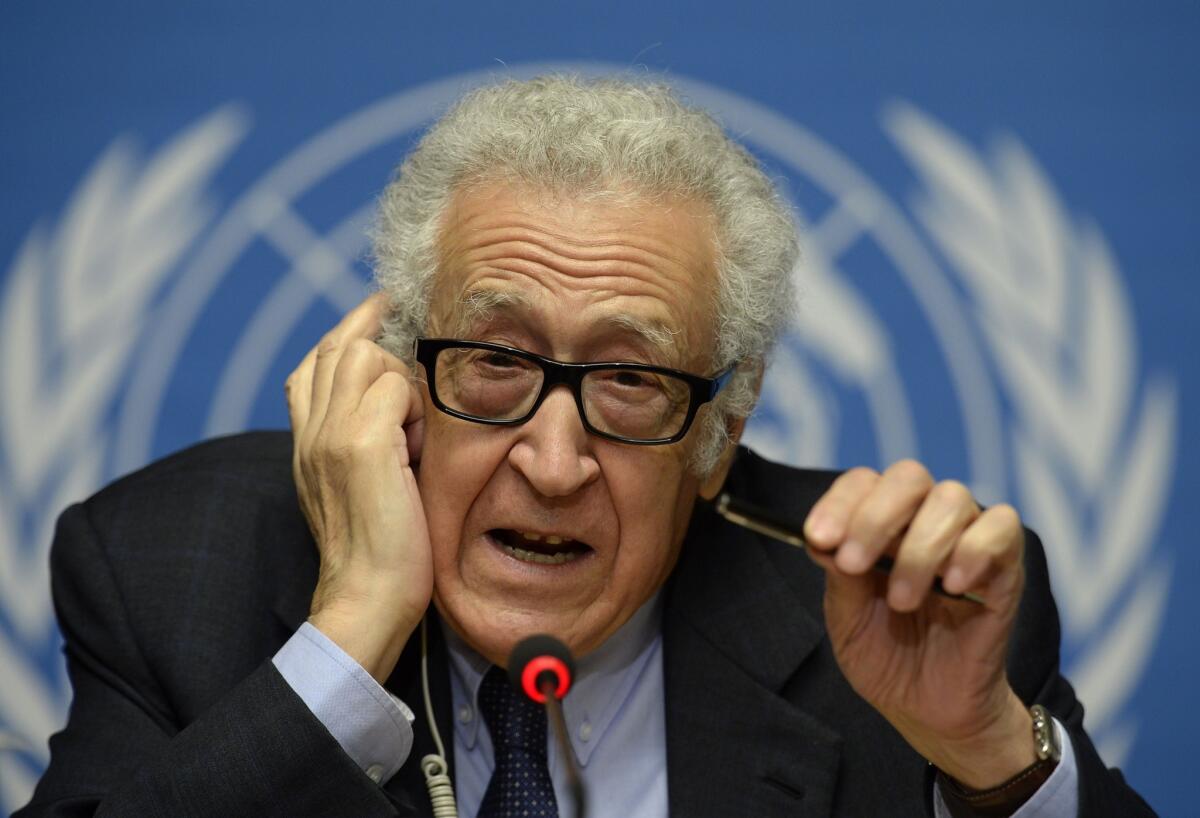Syria peace talks adjourn with little progress but some hope

- Share via
BEIRUT -- The first round of long-awaited Syrian peace talks ended Friday in Geneva with no breakthrough but with both sides planning to meet again and resume negotiations.
“Progress is very slow indeed, but the sides have engaged in an acceptable manner,” Lakhdar Brahimi, the chief United Nations negotiator, told reporters in Geneva. “This is a very modest beginning, but it is a beginning on which we can build.”
Few observers expected a quick fix to emerge from the complex negotiations designed to a craft a political solution to the almost 3-year-old Syrian civil war, which has left tens of thousands dead and sown instability throughout the Middle East.
Still, Brahimi and others saw progress in the fact that the two deeply divided camps -- the U.S.-backed opposition coalition and the government of Syrian President Bashar -- sat down together for the first time. Both sides have agreed to attend a second round of talks, possibly beginning on Feb. 10.
[Updated, 7:29 a.m. PST Jan. 31: Syrian Foreign Minister Walid Moallem later told reporters that the decision to return would only be made after consultations in Damascus with Assad and other members of the government.]
“The gaps between the sides remain wide,” said Brahimi, a veteran peace negotiator. “There is no use in pretending otherwise.”
The opposition bloc views the talks as a means of forcing Assad to step down from office through implementation of a previous Geneva agreement hammered out by world powers. The Syrian government has said Assad’s future is not on the table.
Diplomats were heartened that the talks didn’t collapse, and neither side walked out after almost a week of face-to-face meetings. Officials from the United States, Russia and the U.N. worked more than eight months to get the two warring sides in the same room.
Brahimi acknowledged little advancement on substantive issues, though he did say he saw “common ground” on a number of points, including the need to end the conflict and provide urgently needed humanitarian aid to Syrians suffering the effects of war.
The fact that both sides had become accustomed to sitting in the same room was itself an achievement, the U.N. official said.
“There was immense hope when this conference started,” Brahimi said. “I understand that already people are starting to feel disappointed. What I can tell them is that things have gone so far down, they are not going to get up from the ditch overnight.”
Twitter: @mcdneville
More to Read
Sign up for Essential California
The most important California stories and recommendations in your inbox every morning.
You may occasionally receive promotional content from the Los Angeles Times.













